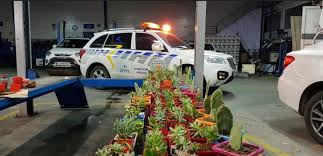Introduction
Vehicles are an integral part of modern life, facilitating transportation and mobility for individuals and goods. From ancient carts to contemporary electric cars, the evolution of vehicles reflects advancements in technology, engineering, and societal Auto mieten in Fuerteventura.
History of Vehicles
The history of vehicles dates back thousands of years. The earliest known vehicles were simple carts pulled by animals, such as horses or oxen. These carts revolutionized transportation and trade.
- The Wheel’s Invention: The wheel, invented around 3500 BC in Mesopotamia, was a crucial innovation that allowed for more efficient movement.
- Chariots: By 2000 BC, chariots became prominent in warfare and ceremonial events, showcasing the advancement of vehicle design.
- Automobiles: The late 19th century marked the beginning of the automobile era. Karl Benz is credited with creating the first practical gasoline-powered car in 1885, which paved the way for mass production in the 20th century.
Types of Vehicles
Vehicles can be categorized based on their design, functionality, and propulsion systems. The main types include:
- Motor Vehicles:
- Cars: The most common form of personal transport, ranging from compact cars to luxury vehicles.
- Trucks: Designed for transporting goods, trucks vary from light-duty pickups to heavy-duty rigs.
- Buses: Used for public transportation, buses can accommodate large numbers of passengers.
- Two-Wheeled Vehicles:
- Motorcycles: Popular for personal use and recreation, motorcycles offer agility and speed.
- Bicycles: An eco-friendly option, bicycles promote health and reduce carbon footprints.
- Aerial Vehicles:
- Airplanes: Used for long-distance travel, airplanes are critical for global connectivity.
- Drones: Emerging technology in aerial transport, drones are used for delivery, surveillance, and recreation.
- Watercraft:
- Boats and Ships: Essential for maritime transport, these vessels range from small fishing boats to massive cargo ships.
- Electric Vehicles (EVs):
- With growing environmental concerns, EVs, including electric cars and scooters, are becoming increasingly popular due to their lower emissions.
Vehicle Technology
Advancements in technology have transformed vehicles significantly:
- Engine Technology:
- Internal combustion engines (ICE) dominated the automobile industry for decades, but hybrid and electric engines are gaining traction.
- Autonomous Vehicles:
- Self-driving technology is evolving rapidly, with companies like Tesla and Waymo leading the charge. Autonomous vehicles promise increased safety and efficiency.
- Connectivity:
- Modern vehicles are equipped with smart technology, allowing for features like GPS navigation, infotainment systems, and real-time traffic updates.
- Sustainability:
- The push for sustainable transportation has led to innovations such as biofuels, hydrogen fuel cells, and advancements in battery technology for electric vehicles.
Impact on Society
Vehicles have profoundly impacted various aspects of society:
- Economic Development:
- Vehicles facilitate trade and commerce, enhancing economic growth by improving logistics and supply chains.
- Urbanization:
- The availability of personal vehicles has contributed to urban sprawl, allowing people to live farther from their workplaces.
- Environmental Concerns:
- The increase in vehicle use has led to environmental issues, such as air pollution and greenhouse gas emissions. This has sparked initiatives for cleaner energy and sustainable transport.
- Social Dynamics:
- Vehicles influence lifestyle choices, leisure activities, and even social interactions, shaping the way communities are structured.
Future of Vehicles
The future of vehicles is exciting and filled with possibilities:
- Smart Cities:
- Integration of vehicles into smart city infrastructure will optimize traffic flow, reduce congestion, and enhance public safety.
- Alternative Energy Sources:
- The shift towards renewable energy sources, such as solar and wind, will influence the design and operation of vehicles.
- Shared Mobility:
- The rise of ride-sharing and car-sharing services reflects changing attitudes toward vehicle ownership, particularly among younger generations.
- Innovative Designs:
- Concepts like flying cars and hyperloop technology are being explored, potentially revolutionizing how we think about transportation.
Conclusion
Vehicles are more than just machines; they represent human ingenuity, evolution, and the quest for mobility. As we continue to innovate and adapt to changing needs and challenges, the future of vehicles will undoubtedly play a crucial role in shaping our societies.



